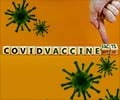The incidence of mRNA vaccine-associated myopericarditis was higher in boys between 12 and 20 years after the second dose of the COVID-19 vaccine.
- Some parents are reluctant to vaccinate their children against COVID-19 due to the risk of mRNA vaccine-associated myopericarditis
- Myopericaditis is a condition that presents itself as an inflammation of the pericardium (fluid-filled sac around the heart) and heart muscle
- Myopericarditis in adolescents and young adults associated with the COVID-19 mRNA vaccine has a low incidence rate and generally favorable early outcomes
Incidence of mRNA COVID-19 Vaccine-Associated Myopericarditis
“This systematic review and meta-analysis found low incidence rate and largely favourable early outcomes of COVID-19 mRNA vaccine-associated myopericarditis in adolescents and young adults from a wide range of populations. These findings are reassuring but continued follow-up is warranted,” the researchers noted.The incidence of myocarditis, pericarditis, or myopericarditis is two to threefold higher after a second dose of the Moderna Spikevax COVID-19 vaccine compared to the Pfizer BioNTech COVID-19 vaccine, according to a study published last month in the Journal of the American College of Cardiology.
Overall incidences of heart inflammation following either immunization, it was noted, are quite rare.
What is Myopericarditis
Myopericarditis, a rare but serious adverse event associated with the mRNA-based COVID-19 vaccine, has been reported globally since the emergency use was authorized, particularly in adolescents and young adults.Outcome of COVID-19 Vaccine-Associated Myopericarditis
According to a recent JAMA study by Jun Yasuhara of Nationwide Children's Hospital in Columbus, Ohio, and Toshiki Kuno of Albert Einstein College of Medicine in the Bronx, New York, the clinical course of COVID-19 vaccine-associated myopericarditis in adults was typically mild, with complete resolution of symptoms and LV systolic dysfunction at presentation normalized within a few days.“Importantly, the risk of developing myocarditis after SARS-CoV-2 infection is significantly higher than after COVID-19 mRNA vaccination,” they noted.
The JAMA study concluded that the advantages of the mRNA COVID-19 vaccine were assessed to exceed the potential hazards.
According to the study, vaccine hesitancy is still significant. Some parents are reluctant to vaccinate their children against COVID-19 even though there are no significant side effects typically linked to COVID-19 mRNA inoculation.
Source-Medindia
















